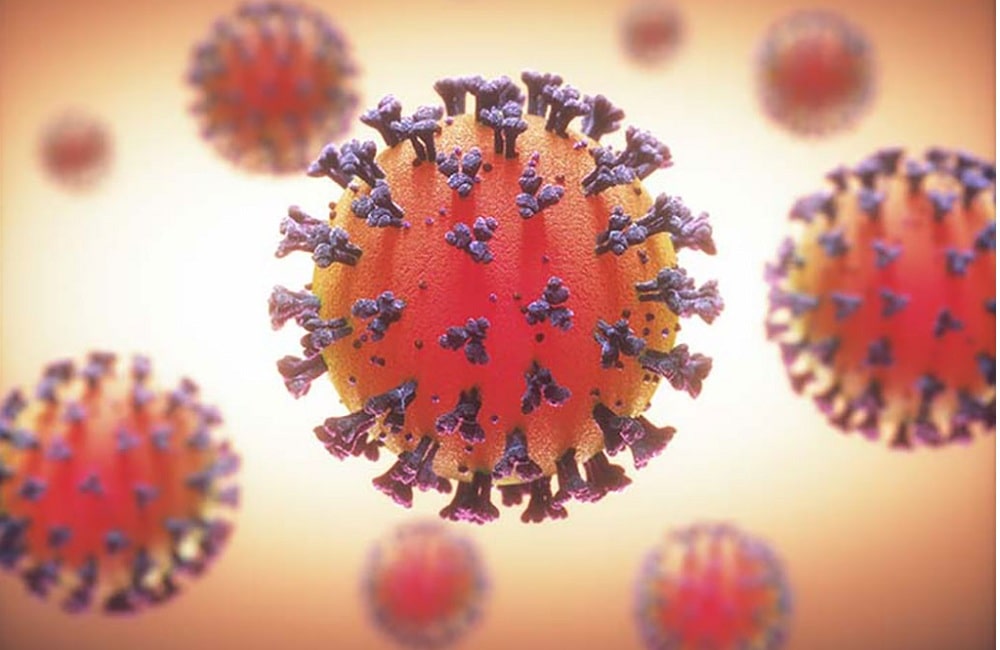A tool designed to detect viral history in a drop of blood has gotten an upgrade in the age of COVID-19. VirScan, a technology that can determine which of more than 1,000 different viruses have infected a person, can now also detect evidence of infection from coronaviruses, including SARS-CoV-2. In a paper published in Science, investigators from Brigham and Women’s Hospital and Harvard Medical School offer up a treasure trove of details about the antibody response to SARS-CoV-2 and how this response may differ in individuals who go on to have a more severe case of COVID-19.
“This may be the deepest serological analysis of any virus in terms of resolution,” said corresponding author Stephen Elledge, PhD, the Gregor Mendel Professor of Genetics at the Brigham and HMS. “We now understand much, much more about the antibodies generated in response to SARS-CoV-2 and how frequently they are made. The next question is, what do those antibodies do? We need to identify which antibodies have an inhibitory capacity or which, if any, may promote the virus and actually help it enter into immune cells.”
In their analysis, Elledge and colleagues looked in depth at antibody responses to SARS CoV-2 by using VirScan to analyze blood samples from 232 COVID-19 patients and 190 pre-COVID-19 era controls. The team identified 800 sites of the virus that the immune system can recognize, known as epitopes. Not all epitopes are created equal; some may be recognized by neutralizing antibodies, which can elicit a response that eliminates the infection. However, if the body creates antibodies against other epitopes, it may launch a less effective response, giving the virus an advantage. In some cases, including the related coronavirus that causes SARS, viruses may even be able to benefit from the body’s antibody response, using antibodies to enter cells in a phenomenon known as antibody-dependent enhancement.
In the case of SARS-CoV-2, the team detected a range of antibody frequencies against various epitopes. Many were public epitopes — regions recognized by the immune systems of large numbers of patients. One public epitope was recognized by 79 percent of COVID-19 patients. Others are considered private and recognized by only a few or even one individual. Ten epitopes were in regions essential for viral entry and are likely recognized by neutralizing antibodies. The team used the most discriminatory epitopes to develop a rapid diagnostic test.
The team’s epitope findings may have important implications for vaccines. If the immune system’s response to public epitopes isn’t found to be protective — or even gives the virus an advantage — vaccines will need to target other regions of the virus to give the immune system a boost.
In addition, the team found that there are several epitopes conserved across coronaviruses, and that the immune system is likely to try to reuse antibodies against them when infected with SARS-CoV-2 — a possible explanation for why so many serology tests for COVID-19 produce false positives.
The team further analyzed where and when different antibody responses occurred, finding that patients with severe COVID-19 were more likely to launch a stronger, broader response against SARS-CoV-2, possibly because their initial immune response failed to control the infection early. Within hospitalized patients, males made more antibodies than females. The researchers also compared the viral histories of hospitalized and non-hospitalized COVID-19 patients and found that hospitalized patients were much more likely to have had CMV and HSV-1, two common herpes viruses. However, the researchers note that it is difficult to draw conclusions about causality given that the group of non-hospitalized patients was younger and consisted of a higher percentage of white people and women, a demographic group that generally have lower CMV infection rates.
Elledge envisions their studies as a stepping stone for identifying the most effective antibodies and eliciting them.
“Our paper illuminates the landscape of antibody responses in COVID-19 patients,” said Elledge. “Next, we need to identify the antibodies that bind these recurrently recognized epitopes to determine whether they are neutralizing antibodies or antibodies that might exacerbate patient outcomes. This could inform the production of improved diagnostics and vaccines for SARS-CoV-2.”
Ellen Shrock, Eric Fujimura, Tomasz Kula, Richard T Timms, I-Hsiu Lee, Yumei Leng, Matthew L Robinson, Brandon M Sie, Mamie Z Li, Yuezhou Chen, Jennifer Logue, Adam Zuiani, Denise McCulloch, Felipe JN Lelis, Stephanie Henson, Daniel R Monaco, Meghan Travers, Shaghayegh Habibi, William A Clarke, Patrizio Caturegli, Oliver Laeyendecker, Alicja Piechocka-Trocha, Jon Li, Ashok Khatri, Helen Y Chu, MGH COVID-19 Collection & Processing Team, Alexandra-Chloé Villani, Kyle Kays, Marcia B Goldberg, Nir Hacohen, Michael R Filbin, Xu G Yu, Bruce D Walker, Duane R Wesemann, H Benjamin Larman, James A Lederer, Stephen J Elledge.























